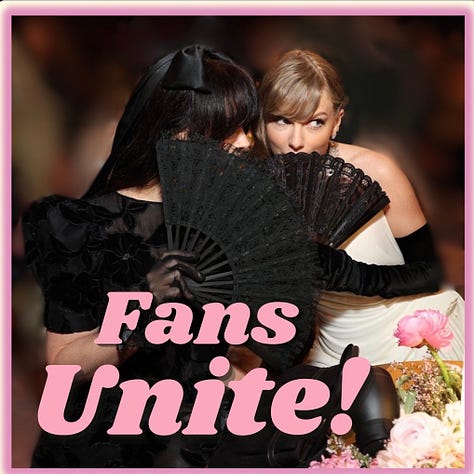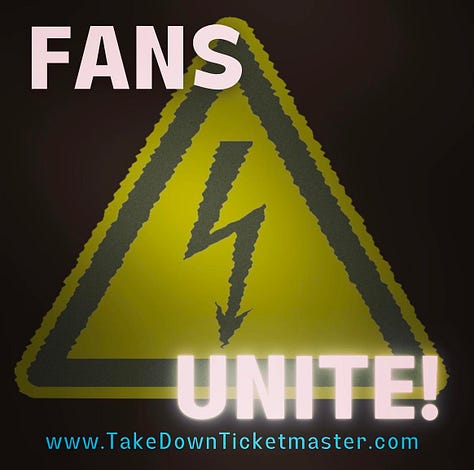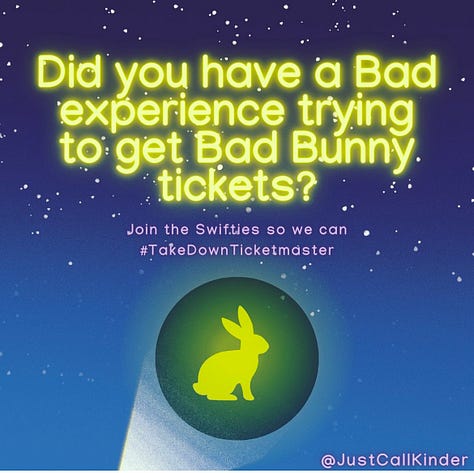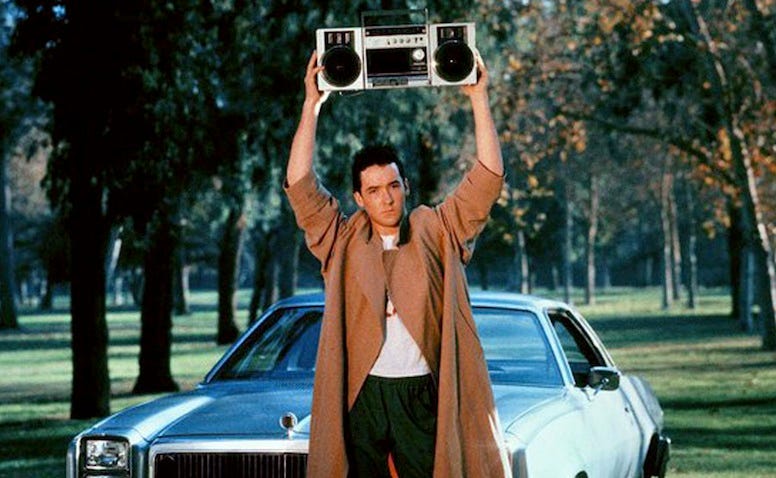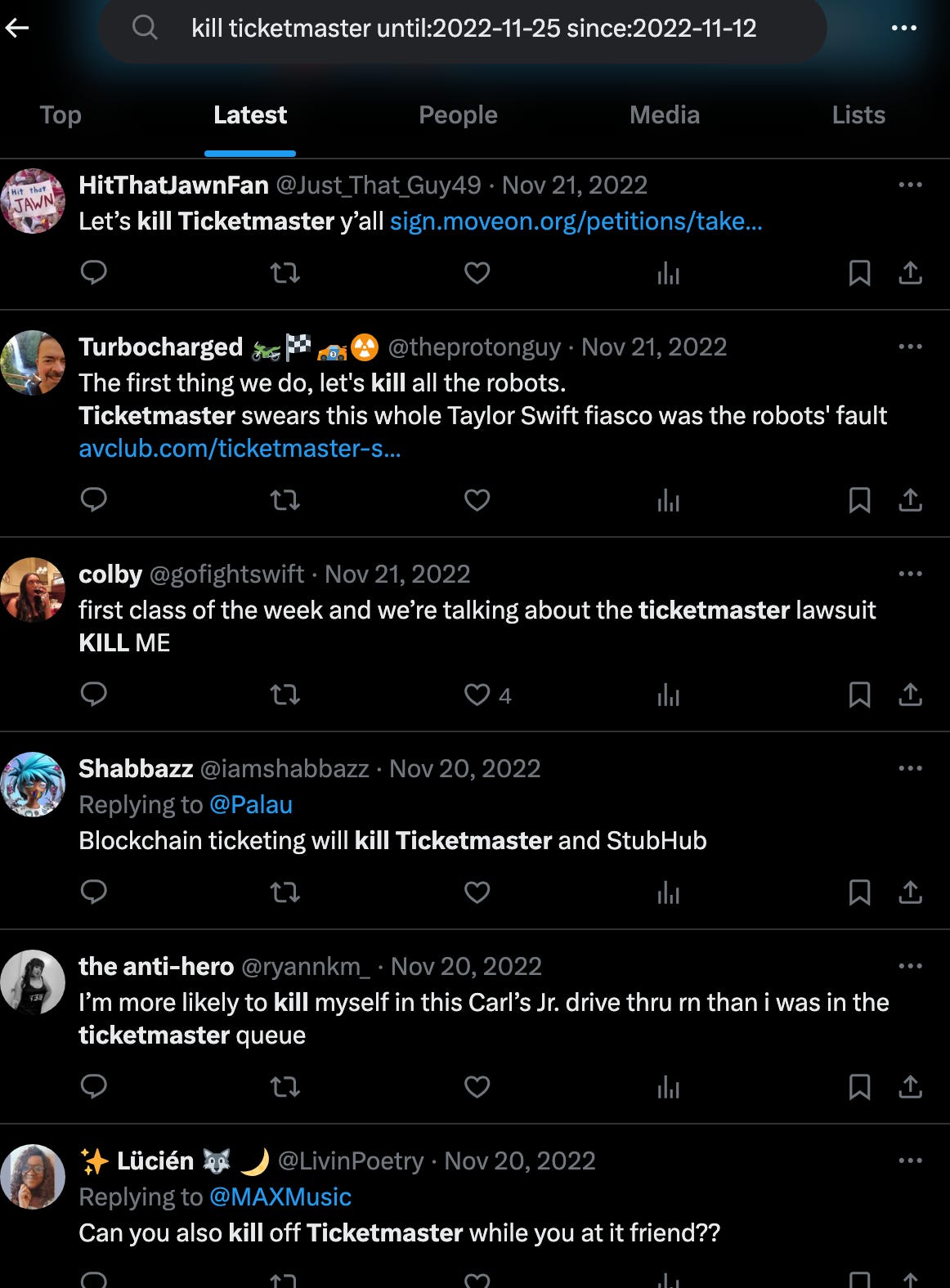There is much pontificating about what makes a “real American” (besides just citizenship). A general mistrust of institutions and government, along with a pervasive feeling that the system is rigged against commoners. When a problem du jour arises, schisms happens early on the bouquet of ideas on how to redress these justifiable grievances. A chasm opens and people willingly fall into predictive proposals, assigning blame to the usual scapegoats. This essay argues that concerts are the most fitting bassline for bypassing the queue for transformational change in society.
Lest we not forget how based it was that Trump and Biden dragged the mainstream media during the campaign.
Taylor Swift Cues A Meltdown
Two years ago, social media melted down when millions of Taylor Swift fans couldn’t secure tickets to the Eras Tour. For perhaps the first time, many realized that the system is truly rigged against consumers. In December 2022, Kinder Law filed a lawsuit against Live Nation-Ticketmaster shortly after the chaotic ticket sale for Swift’s tour.
It couldn’t have happened to a better bigger artist.
I was elated.
The fallout area was so contaminated that the next day, the Department of Justice announced Ticketmaster had been secretly under investigation for antitrust violations for months. Long before this, I had concluded that antitrust was the essential tool to address the music industry’s abuses. However, it took the base desires of a fervent fanbase to catalyze a movement.
Over the past 6 weeks, I’ve been recruiting fans to join Kinder Law’s new lawsuit against Live Nation-Ticketmaster. This time there are 668 delegates plaintiffs from 46 states, representing nearly 100 different artists. This effort has consumed most of my waking energy and is the cause of my fallow Substack.
I’m wary of idolatry—a stance that can feel jarring in the entrenched fan cultures of the internet. Words I’ve muted include #charts and #Grammys. It’s remarkably dull how much of pop fandom discourse revolves around metrics and listicles: songs that broke a billion streams, the most number-one records, the oldest woman who still looks good in a leotard...
How much of being a public figure is about the numbers?
Now a confused school girl stares at the TV tray
The stresses of maturing compound every day
She glances up to see her favorite video
And gets ideas from Madonna's nasty clothes
In need of affection
She craves a direction
Her heroes offer her
- Bad Religion, No Direction
Are we having fun yet?
Public figures can only ascend if there is enough buy-in and resources allocated to maintain prominence. Even Madonna’s rise is tied to connections with the mafia.
There’s a Faustian bargain in striving to becoming a demigod to the commoners: you can’t quit.These figures become hostages to their own fiefdoms—a humbling outcome for those who have become vassals of misused power. I’m not a fan of the expectation that we can’t trust the next generation enough to pass the torch. Instead, we grind ourselves down until our finite humanity is gruesomely consumed by a ravenous public.
It’s all very on brand for vulture capitalism.
The Monotony of Evangelism
Consumers’ outrage over access to entertainment serves as a proxy for deeper issues they can’t loudly proclaim they can’t afford. It’s one thing to admit you can’t afford a luxury; it’s another to confess you can’t pay rent. People are far more familiar with the fight against Ticketmaster than with the conditions driving up the cost of food—or the remedies for it.
I’ve been working in the antimonopolist space for a few years now. Nothing I’ve done—or could ever do—has the same power to start a conversation as, say, murdering a CEO and leaving a bag of Monopoly money in Central Park. While the cost of white-collar crime often results in real injury and death, dismantling the system of “death by a thousand paper cuts” is an arduous slog. We need to interrogate death by spreadsheet at the cellular level.
Nobody likes being in the red—or being seen with blood on their hands.
Why didn’t Luigi leave the monopoly board in the park?
The public largely doesn’t understand how systems work—until they need them. Gangster capitalism isn’t an American ideal, yet the culture industry glorifies gangsterdom at every turn. Take what’s yours, the message goes. If you can take it, it’s yours.
I’ve had the same conversations a million times while trying to recruit plaintiffs to sue Ticketmaster. I would troll social media, searching for users venting their frustrations, and then reach out.
Even two years ago, violent threats against Ticketmaster were common. Access to entertainment is that important to people—but they sorely lack roadmap to make meaningful change.
It is unsurprising, yet troubling, that the murder of United HealthCare CEO has sparked even more detailed calls for vigilante justice against corporate America. To generate revenue, the culture industry blatently relies on conditioning fans to be copycats of their fave idols.
Dress like them!
Smell like them!
Drink their alcoholic Kool-Aid!
Merch Ado About Nothing
Mimicry is the product the culture industry is selling. A star has been placed upon the skylight, lighting up their worshipful gazers with consumable delights.
Imagine calling yourself an artist and selling ad space in your songs?
Give me love, give me Fendi, my Balenciaga daddy
- “Unholy”, Kim Petras and Sam Smith
I could have my Gucci on
I could wear my Louis Vuitton
But even with nothin' on
Bet I made you look
- “Made You Look”, Meghan Trainor
Parasocial celebrity relationships provide a shortcut to community building in an atomized world. Sometimes, when we are deep in solitude, a song may be our only relatable companion. Taylor Swift’s cultural monopoly invites derision, but there is no point in arguing with zealots fans (of any kind really). There’s too much of her in them now.
As my 7-year-old daughter learned in school: “Don’t yuck my yum.”
To effect meaningful change, we must rewrite the baseline of a song everyone knows:
#FansUnite In The Metrics
Pop culture is built on worshiping merchants of overconsumption. Many influencers, who allegedly grow their platforms organically, mirror this model with their naked infomercial aspirations.
We can never buy enough becomes we can never be enough.
Pop culture is built on worshiping merchants of overconsumption. Many influencers, who allegedly grow their platforms organically, mirror this model with their naked infomercial aspirations.
We can never buy enough because we can never be enough. If we want to escape the tyranny of metrics, we must innovate through healthy competition.
Is there anything more uniting than being part of the same crowd? Singing the same song? Cheering for the same team?
Everyone sounds good singing in a crowd because, by default, everyone is harmonizing.
When Citizens United and UnitedHealthcare are morally bankrupt, we can decide to unite ourselves.
